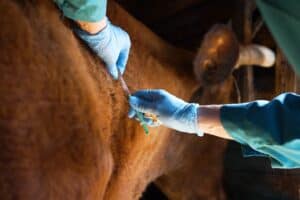Lebanon has recorded 264,647 coronavirus cases and 2,084 deaths since February 2020 in total.

Lebanon has prolonged a total lockdown by two weeks to stem an unprecedented rise in coronavirus cases and protect its collapsing health sector.
The strict restrictions include a round-the-clock curfew and limit grocery shopping to home deliveries.
“The total lockdown is extended to February 8, 5 am,” the Higher Defence Council, Lebanon’s top security body, said in a statement.
The complete lockdown had initially been due to run from January 14 to January 25.
But daily infection rates have remained exceptionally high and Covid-19 death tolls are spiking.
The health ministry said late Wednesday that a record 64 people had died from the disease in the previous 24 hours.
Firass Abiad, the head of Lebanon’s main state hospital treating coronavirus, backed the new extension.
Lebanon has reached the stage of “an uncontrolled epidemic with limited additional health system capacity available”, he said.
Authorities have urged hospitals to increase the number of beds for coronavirus cases.
Intensive care units are near full, with occupancy rates of 91 percent nationwide and more than 97 percent in Beirut on Wednesday, the World Health Organisation said.
Lebanon has recorded 264,647 coronavirus cases and 2,084 deaths since February 2020 in total.
Cases skyrocketed after families gathered during the end-of-year holidays and authorities allowed revellers to gather in bars until 3 am, despite warnings from health professionals.
Lebanon is expecting its first vaccines next month.
The World Bank said Thursday it was providing $34 million to fund vaccines for more than two million people in Lebanon.
“This is the first World Bank-financed operation to fund the procurement of Covid-19 vaccines,” the Washington-based institution said in a statement.
Those vaccines would arrive by early February.
The head of the parliamentary health committee, Assem Araji, said Lebanon was looking to secure six million vaccines in total.
Lebanon has said it signed a deal with Pfizer to import more than two million vaccines starting in February, in addition to 2.7 million under the Covax programme set up to ensure equitable access to Covid-19 vaccines worldwide.
The authorities and the private sector have also been working towards securing a further two million doses from other companies.
For more news your way, download The Citizen’s app for iOS and Android.
Support Local Journalism
Add The Citizen as a Preferred Source on Google and follow us on Google News to see more of our trusted reporting in Google News and Top Stories.






